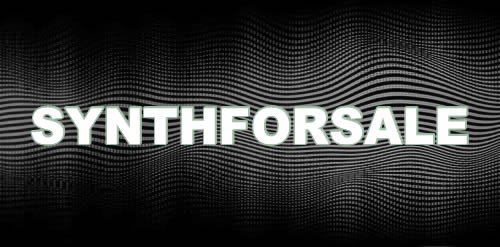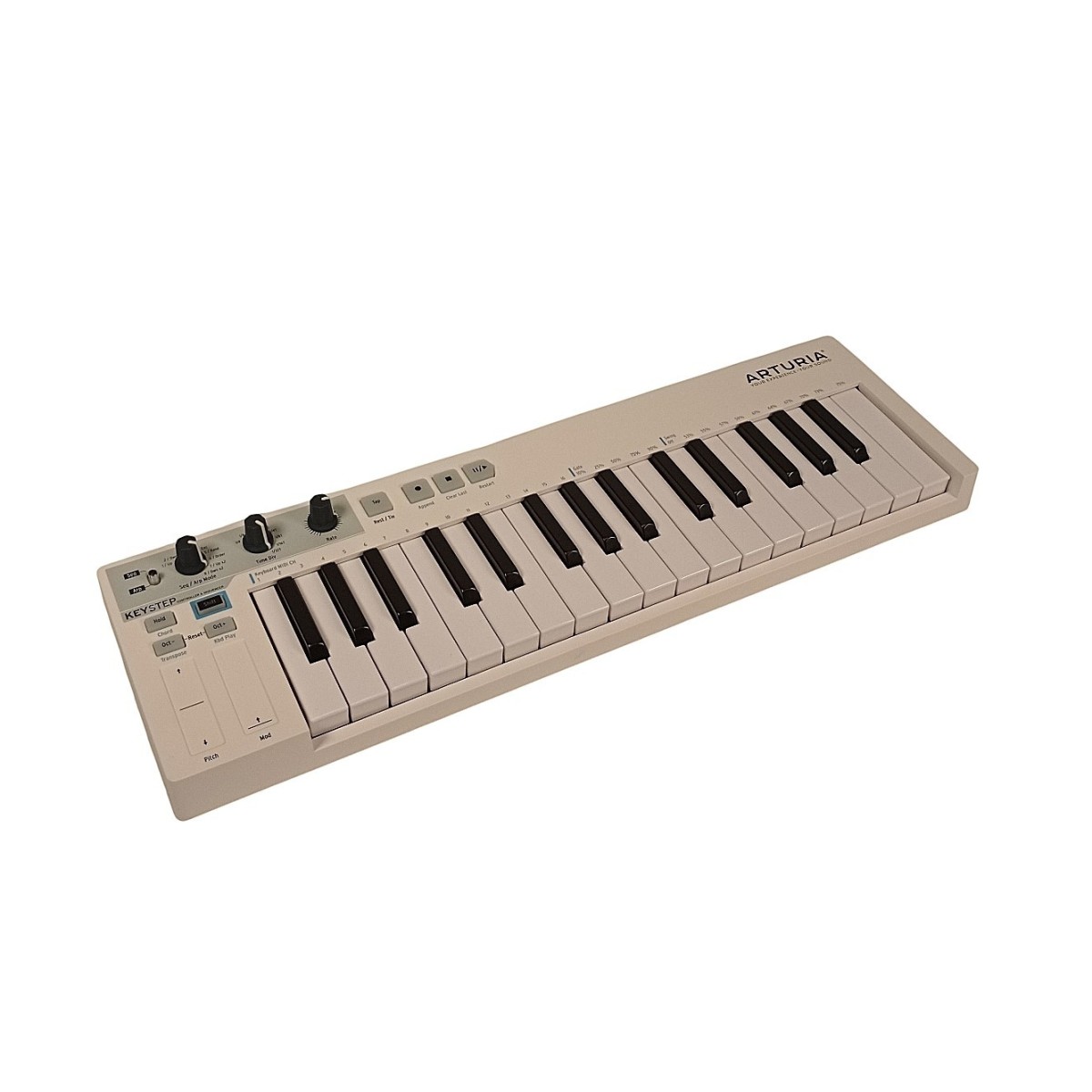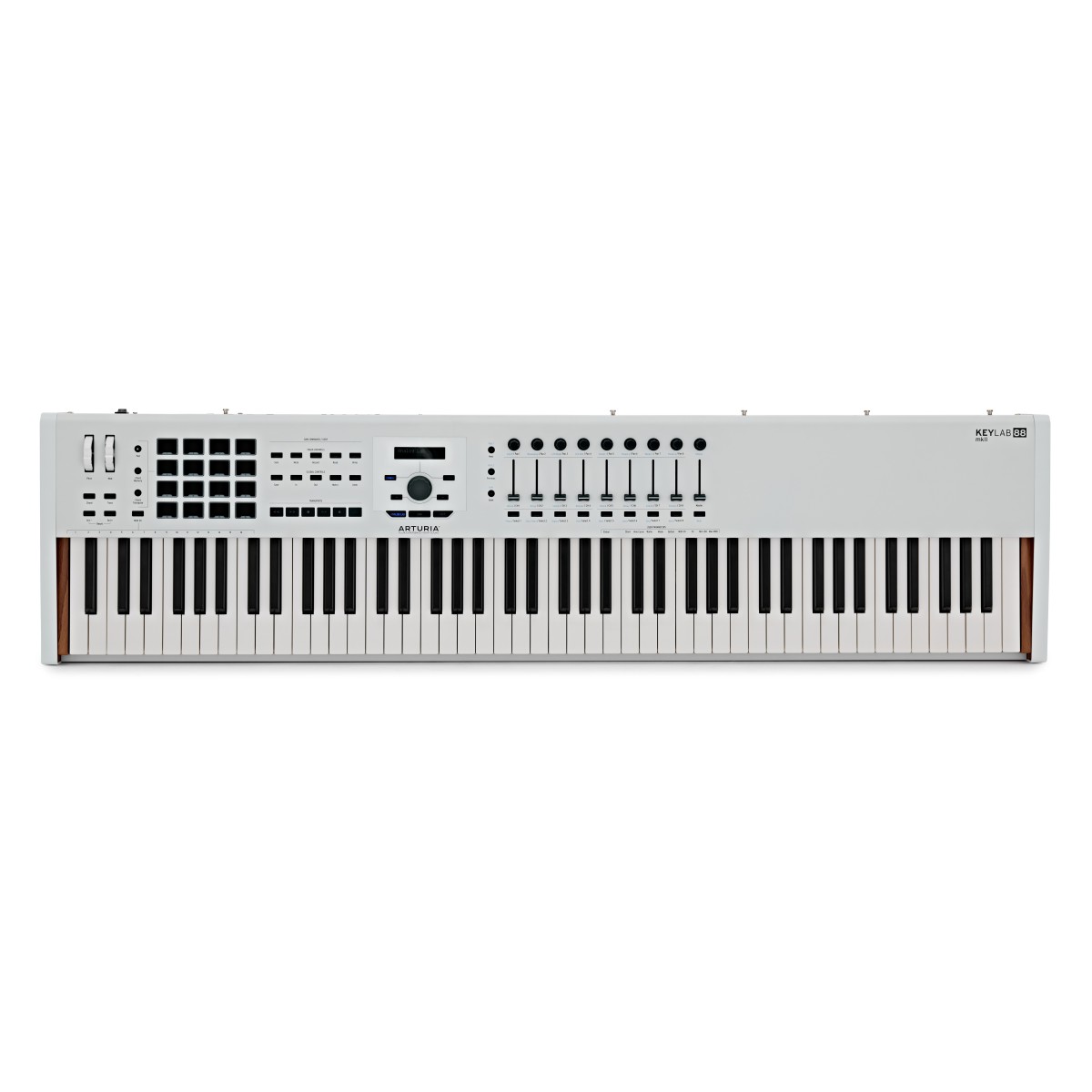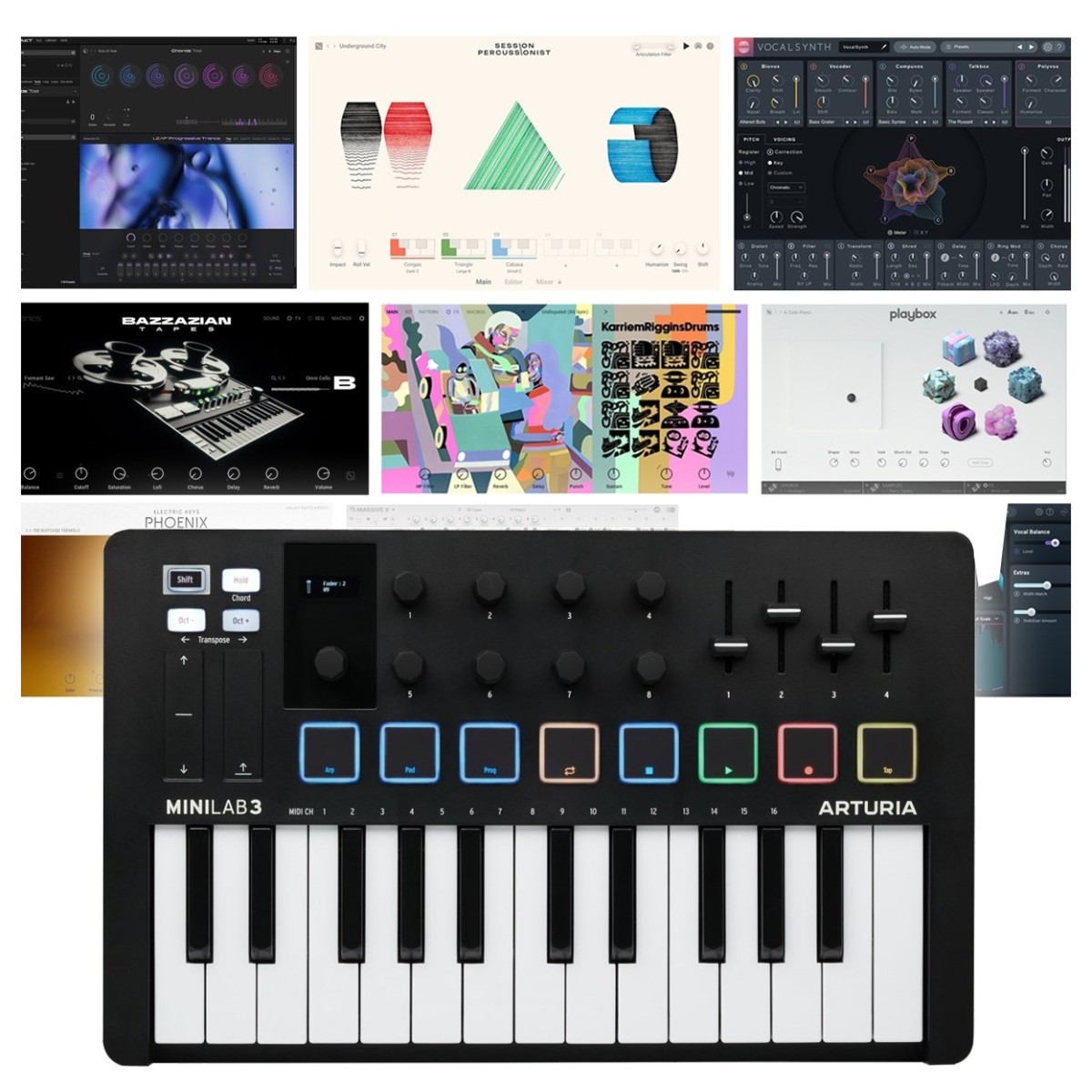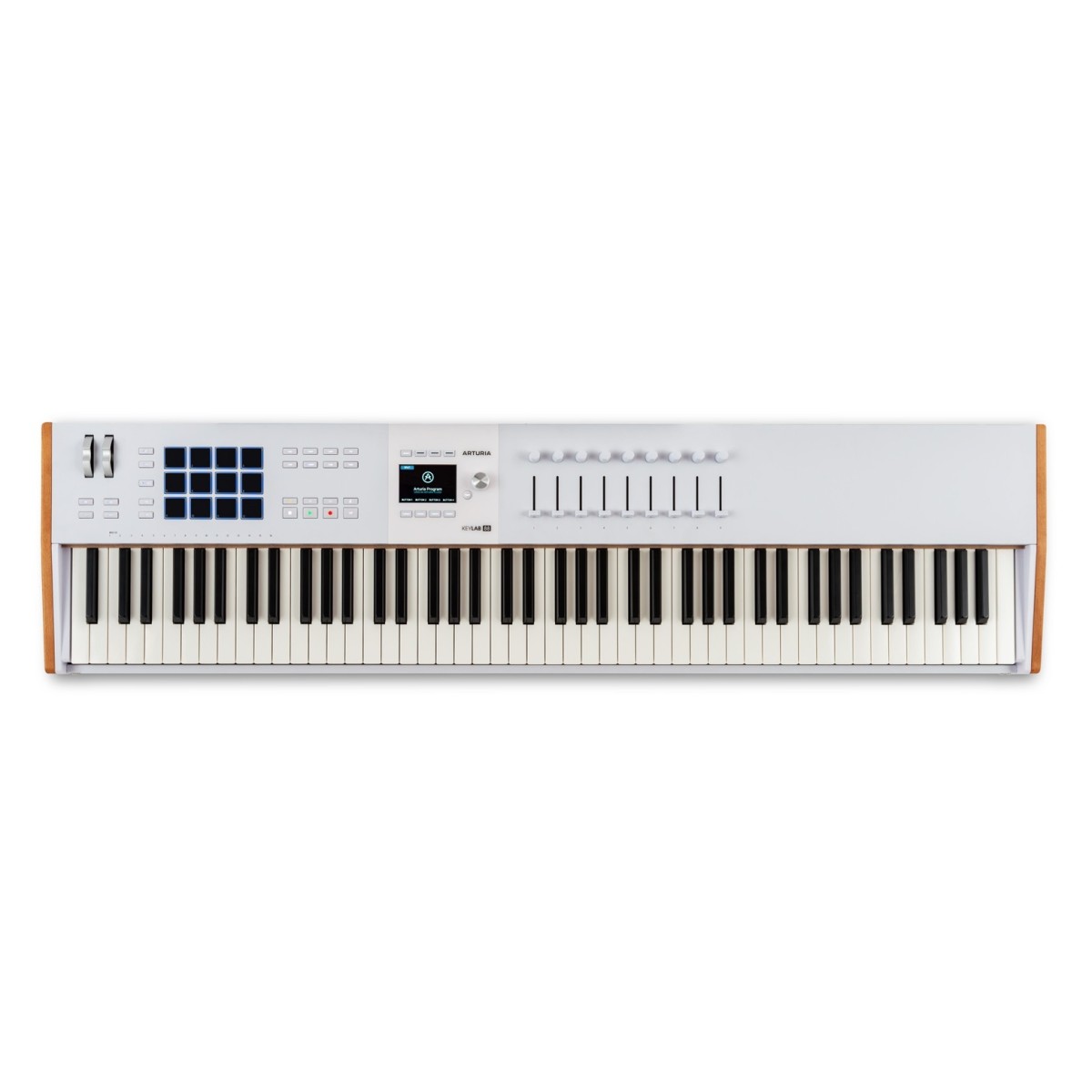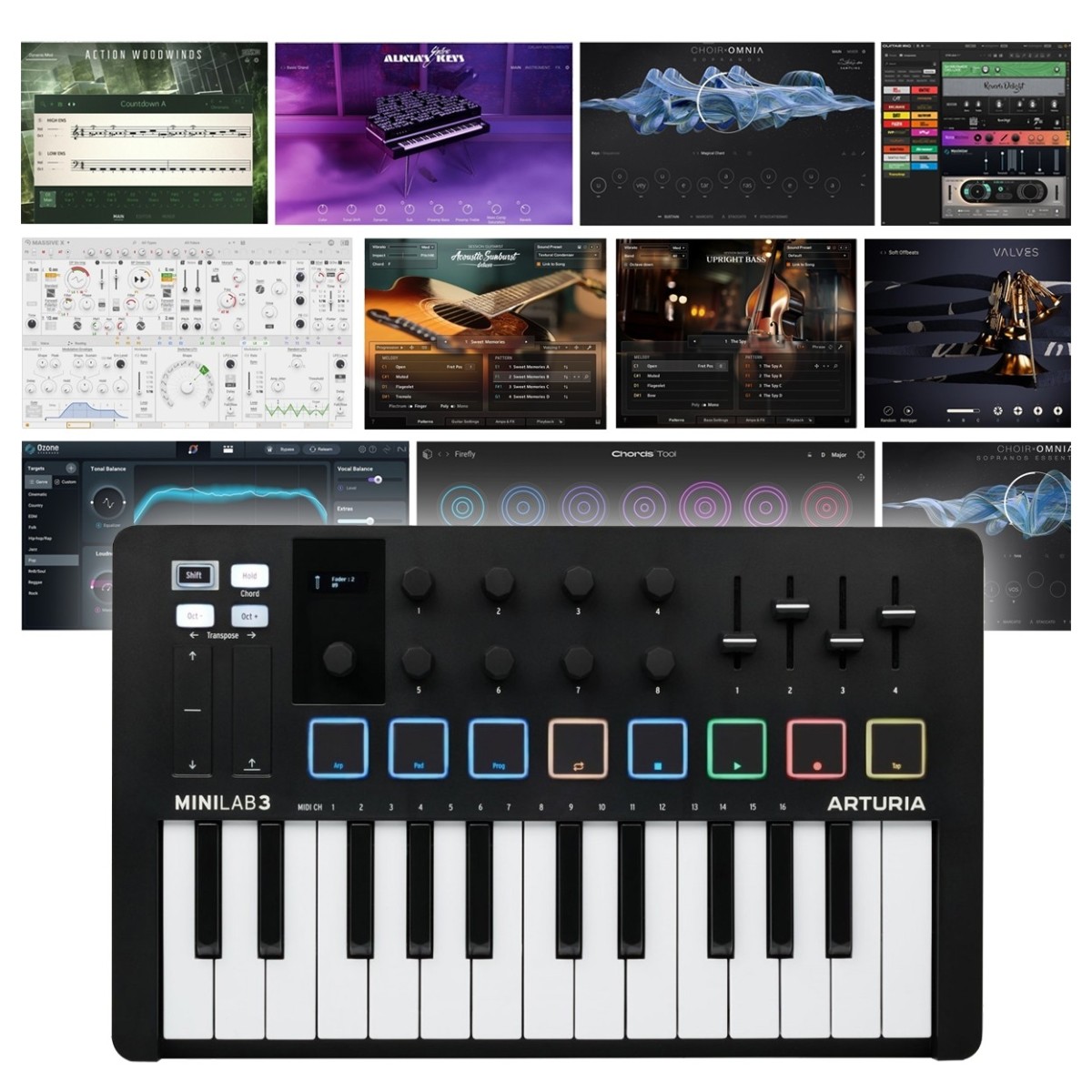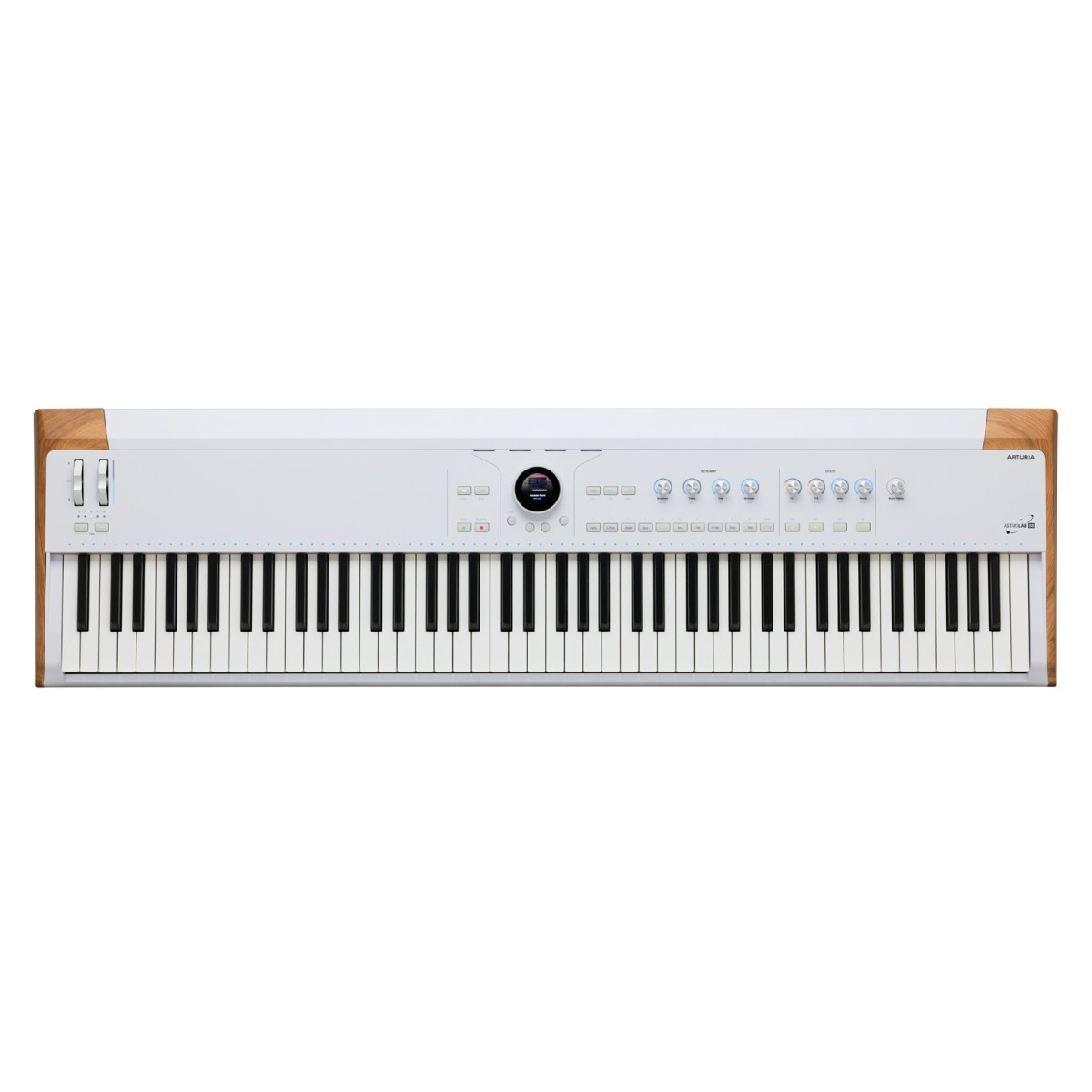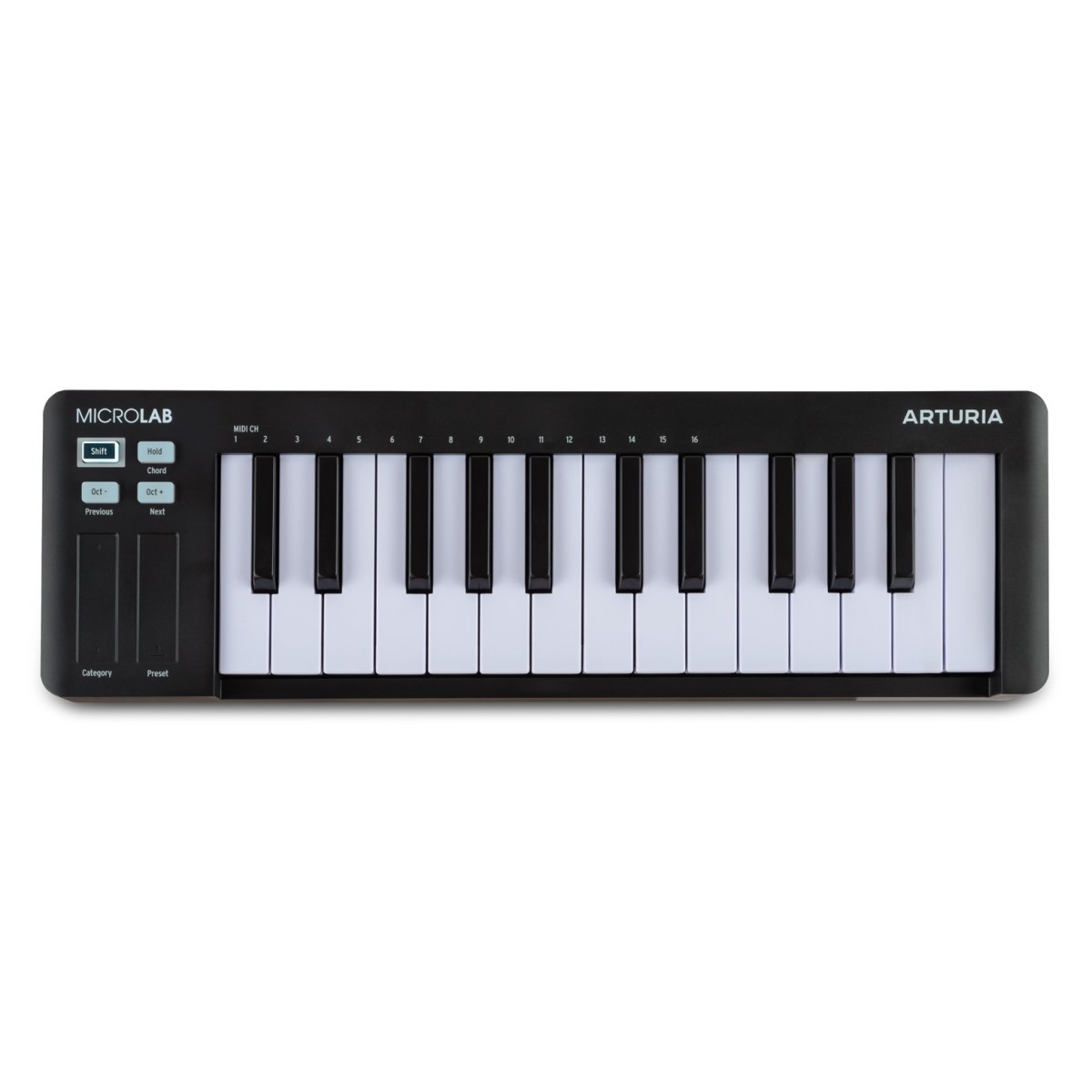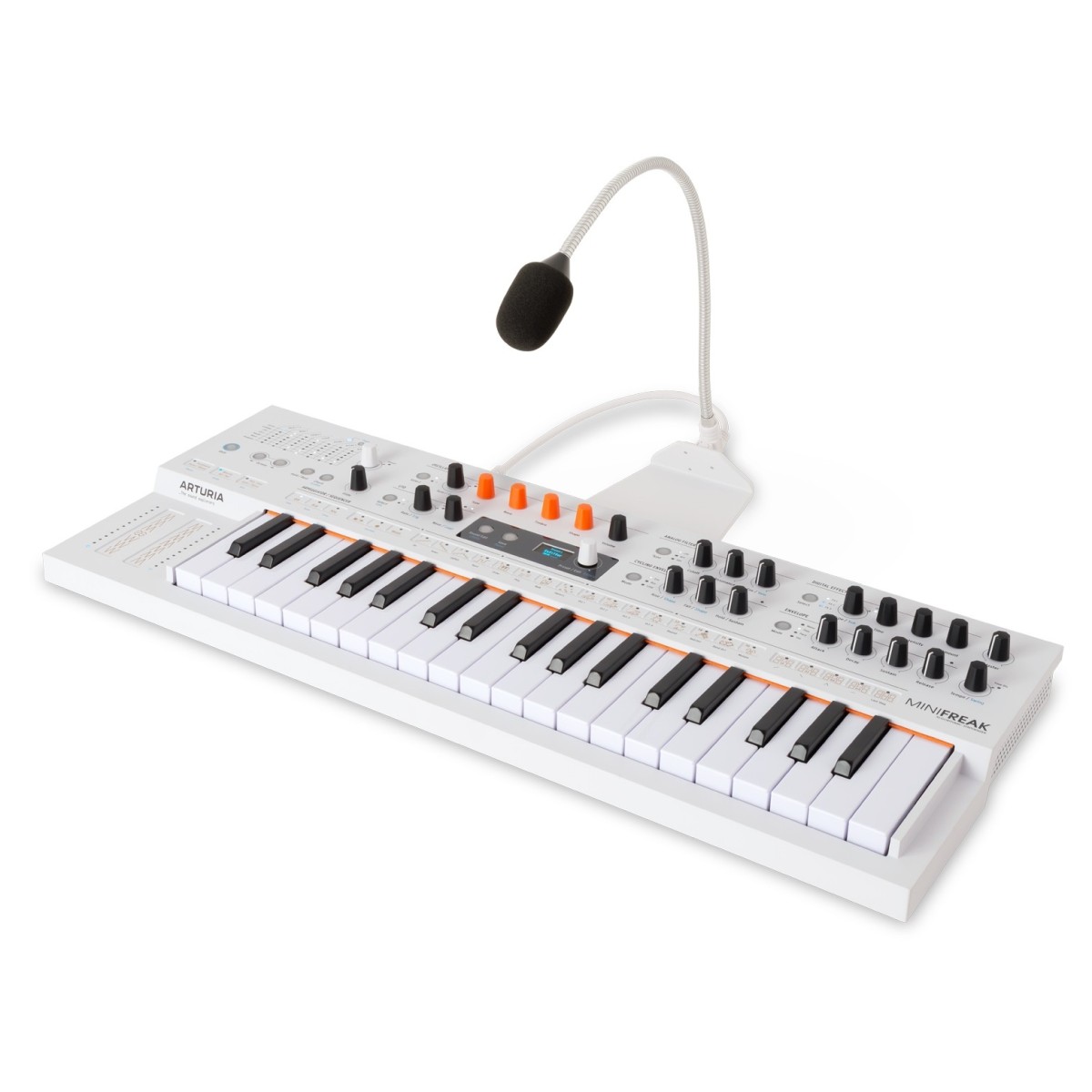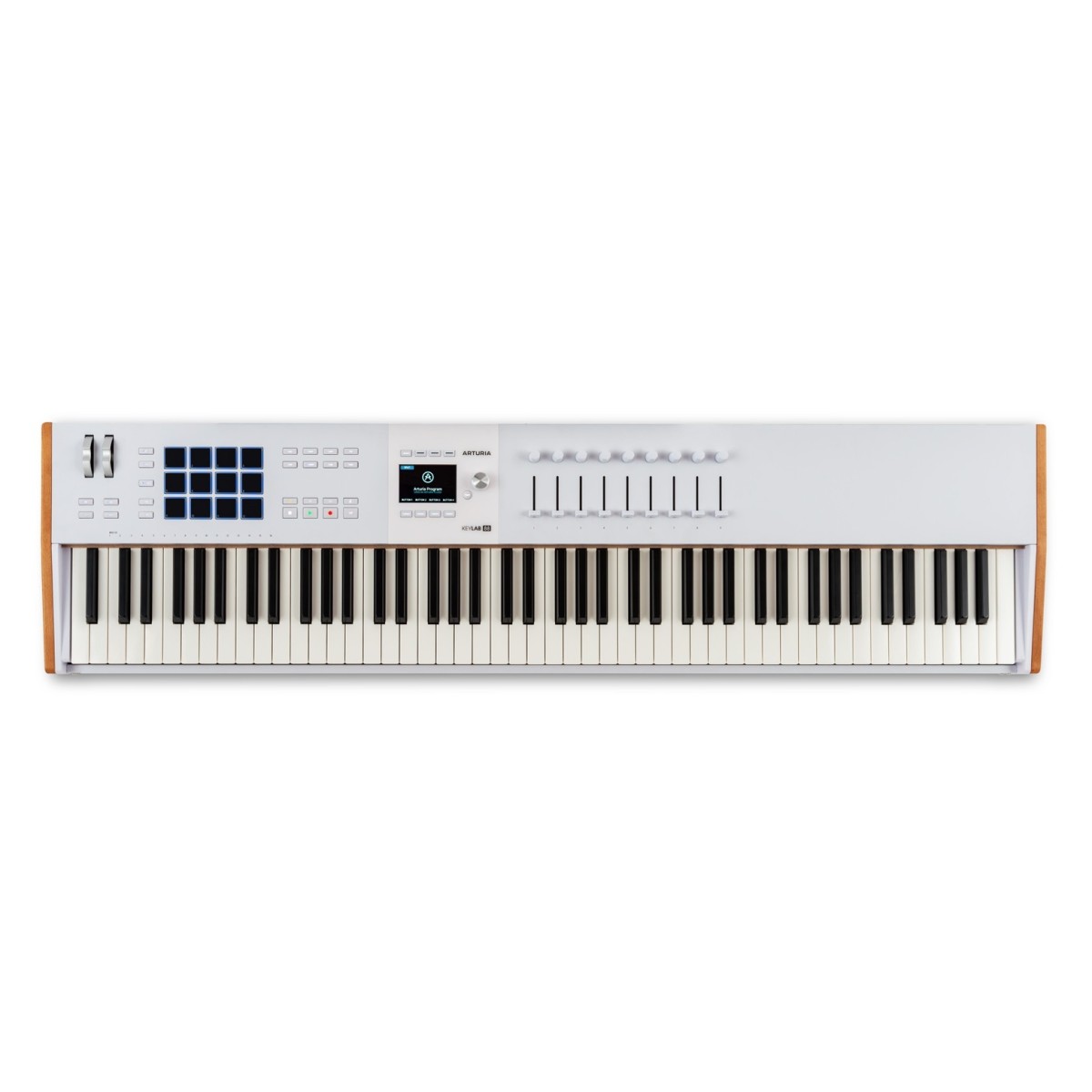Description
The Arturia KeyStep USB Keyboard with Polyphonic Step Sequencer – Secondhand is made by Arturia a high quality affordable MIDI Controller. The Arturia KeyStep USB Keyboard with Polyphonic Step Sequencer – Secondhand is New manufactured by Arturia and available from Synth for Sale now for £126 with delivery to all areas of the UK & Europe . Included with this Arturia KeyStep USB Keyboard with Polyphonic Step Sequencer is its Original Package.
About Arturia
We have one of the largest online selection of new and used Arturia music gear. If you are looking for your next synth, we will have it online at SynthForSale with fast delivery direct to you at home. Every item on the SynthForSale marketplace is delivered by sellers to all areas of UK, England, Ireland, Scotland & wales
Arturia is a French company renowned for its innovative contributions to the music technology industry, particularly in synthesizers, software instruments, and MIDI controllers. Founded in 1999, Arturia initially gained recognition for its software emulations of classic synthesizers, offering musicians access to faithful recreations of iconic instruments like the Minimoog, ARP 2600, and CS-80 through its **V Collection**. These software instruments are highly praised for their accuracy and authentic sound, making them a go-to choice for producers and musicians seeking the vintage synth experience without the cost or maintenance of the originals.
In recent years, Arturia has expanded its product range to include hardware synthesizers such as the **MicroFreak**, **MiniBrute**, and **MatrixBrute**, each offering distinctive features and sound design capabilities. Their **KeyLab** and **MiniLab** MIDI controllers are popular choices for live performers and studio producers alike, combining intuitive control with solid build quality. Arturia’s ventures into audio interfaces, like the **AudioFuse** series, further reflect the company’s commitment to providing versatile, high-quality gear that caters to the needs of modern musicians and producers.
Keyboard
A music keyboard is a versatile musical instrument consisting of a set of keys or buttons that produce different pitches when pressed. Keyboards come in various forms, including acoustic pianos, electric pianos, synthesizers, and MIDI controllers. They allow musicians to play melodies, harmonies, and chords with ease, making them fundamental tools in a wide range of musical genres and settings. Keyboards often feature additional controls such as knobs, sliders, and buttons for manipulating sound parameters, and they can be connected to other devices like computers or sound modules for expanded functionality. Whether used for classical, pop, jazz, or electronic music, the keyboard’s intuitive layout and expressive capabilities make it an essential component of modern music production and performance.
Keyboards
MIDI Controller
Pianos and Keyboards
From expressive stage pianos to versatile MIDI controllers and classic electric keyboards, this category brings together everything you need to play, perform, and produce. Whether you’re after the weighted feel of hammer-action keys, the vintage charm of a Rhodes-style sound, or a compact keyboard to control your synth rig, you’ll find something here to suit your playing style. Ideal for both studio work and live performance, these instruments offer tactile connection and musical freedom across genres — from ambient textures to punchy techno stabs and everything in between.
Polyphonic
This synthesiser supports polyphonic playback, allowing you to play multiple notes simultaneously. With its ability to create lush chords and complex harmonies, it’s ideal for composing rich textures in your music. Whether you’re crafting intricate soundscapes or layering parts for a full arrangement, the polyphonic capabilities ensure your sound remains vibrant and dynamic.
Second Hand
Buying used synths or audio gear can be a great way to get high-quality equipment at a lower price. Many synthesizers, drum machines, and studio gear are built to last, meaning you can find well-maintained, fully functional gear for a fraction of the cost of new models. This is especially beneficial for vintage or discontinued synths, which often have unique character and sound that newer digital recreations can’t fully replicate. Additionally, used gear tends to hold its value well, so if you ever decide to sell, you’re less likely to take a big loss.
Another reason to buy used is access to classic and rare equipment. Many legendary synths—like the Roland Juno series, Korg MS-20, or Moog Model D—are no longer in production, making the second-hand market the only way to get them. Some older gear also has analog warmth and hands-on controls that many musicians prefer over modern digital interfaces. While buying used does come with some risks, like potential wear and tear, careful shopping from trusted sellers, music forums, or local stores can help you find great deals on reliable, high-quality gear.
Secondhand
USB
Having a USB connection provides crucial benefits for modern musicians and producers, primarily related to connectivity and workflow. USB enables a direct link between the synthesizer and a computer, making it possible to transmit MIDI data seamlessly without relying on traditional 5-pin MIDI cables. This connection allows the synth to function as a MIDI controller, sending and receiving MIDI signals to and from a DAW (Digital Audio Workstation). As a result, musicians can easily sequence and record their synth performances, automate parameters, or even use the synth to control virtual instruments within the DAW. This streamlined setup saves time and reduces the amount of cabling and interfaces required, creating a more efficient studio or performance environment.
In addition to MIDI capabilities, USB ports on synthesizers often support data transfer and software updates. This means users can back up and restore patches, download new firmware updates to add features or improvements and manage their sounds with dedicated software. For some portable or compact synths, USB connections also offer a convenient power source, allowing the synth to draw power directly from a computer or USB battery pack. This combination of data management, connectivity, and power makes USB-equipped synthesizers a versatile and practical choice for musicians seeking flexibility and ease of use in their setups.
